Slow cooker vs pressure cooker - which should you buy?
We consider the pros and cons of slow cookers and pressure cookers to see which is worth your cash
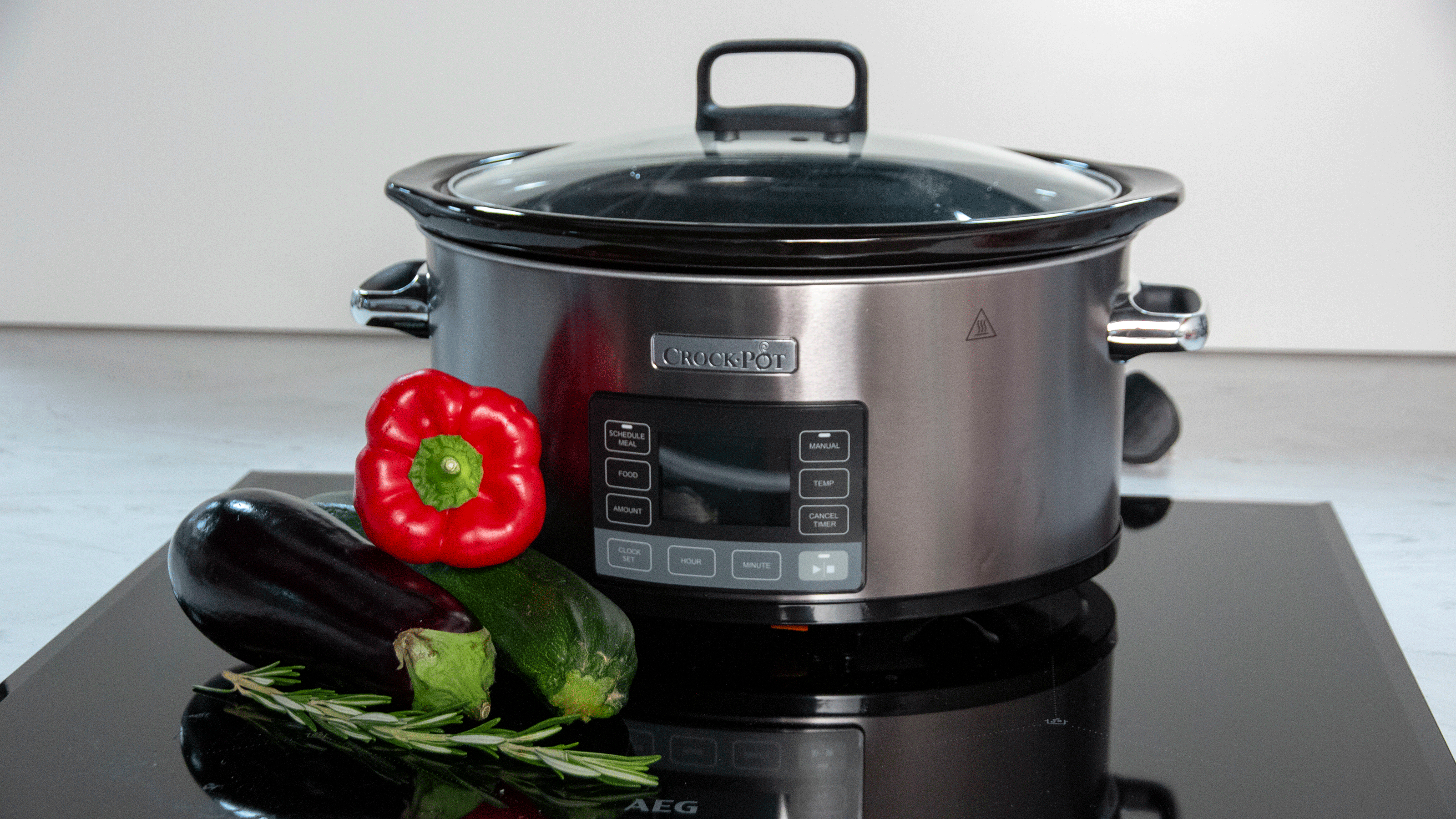
Confused about the difference between a slow cooker vs pressure cooker? These two countertop kitchen appliances may look similar, but that's where their likeness ends. They're actually more like opposites in the way they cook food, with a slow cooker doing exactly what it's name suggests and cooking food slowly over a long period of time, and a pressure cooker cooking food in a fraction of the time it would take on the hob.
Fortunately, they can both create delicious and nutritious hearty meals. But how do you decide which to invest in? The slow cooker vs pressure cooker debate has chefs and experts divided, and whether you decide to invest in one of the best slow cookers or the best pressure cookers, we're confident you'll be able to enjoy your purchase for years to come.
'Slow cookers and pressure cookers are both simple and easy to use and each comes with its own set of benefits,' says James Rendell, Sales Administrator, Reliant. 'Both are great at cooking and are really useful devices to have.'
Slow cooker vs pressure cooker
We've asked the experts to deep dive into the slow cooker vs pressure cooker debate so that we can clarify the differences between the two and weigh up the pros and cons to work out which is more suited to your kitchen.
What is a slow cooker?
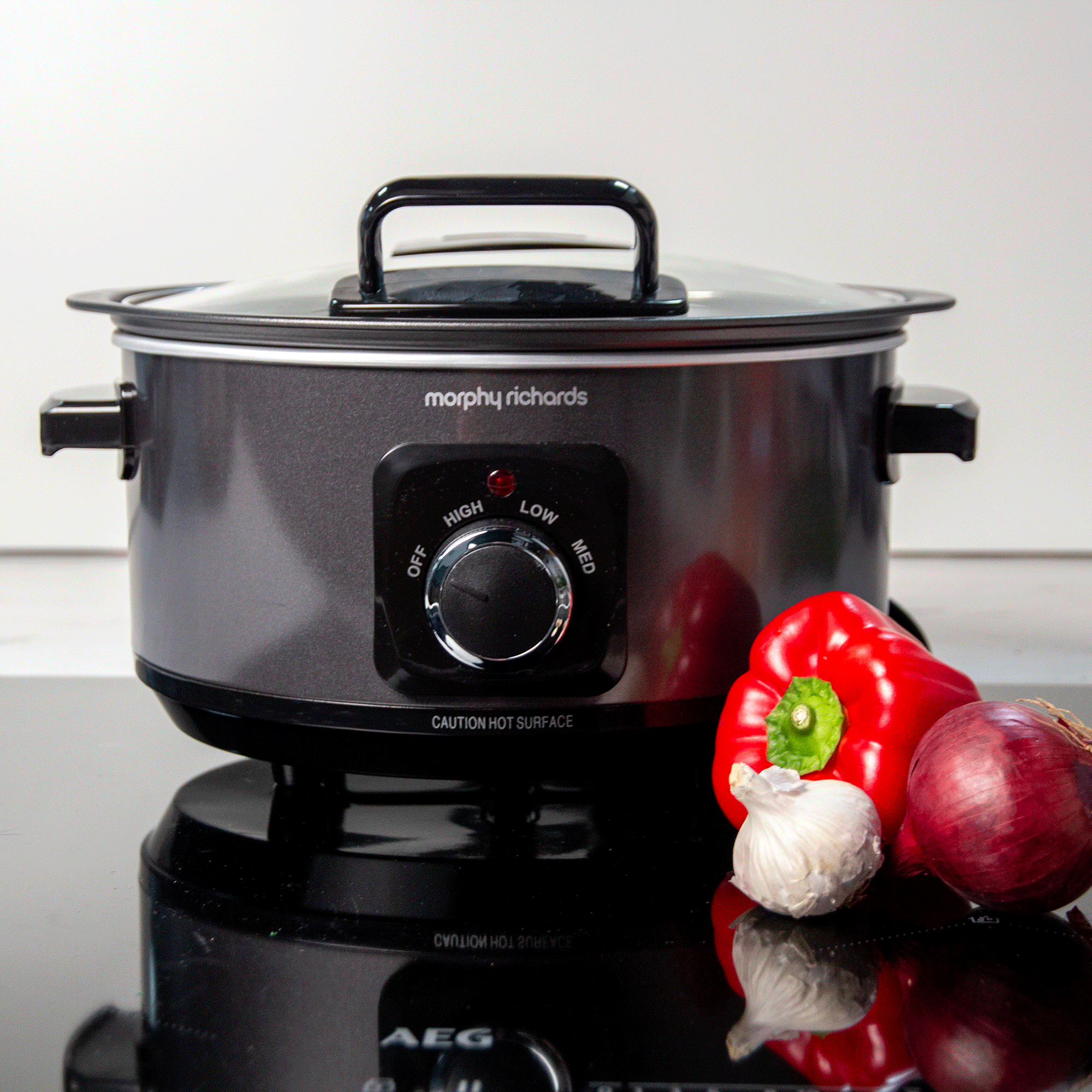
'A slow cooker is effectively a countertop electrical appliance that is perfect for simmering longer cooked meals,' says professional chef Dennis Littley, Ask Chef Dennis. 'It works by keeping the food (with liquid included!) at a constant temperature, allowing a thorough cook with no real worries of overcooking.'
'Slow cookers are among the kitchen’s most energy-efficient appliances due to their concentrated space,' says Cira Jones, Marketing Manager, Russell Hobbs. 'They allow you to cook up a variety of different dishes from stews to curries and even desserts in minimal time with minimal preparation.'
Slow cookers are extremely popular because they do all the hard work for you. There's no need to check back in on the food as it cooks, so you're free to do other things and even leave the house while the slow cooker makes your meal.
Sign up to our newsletter for style inspiration, real homes, project and garden advice and shopping know-how
What is a pressure cooker?
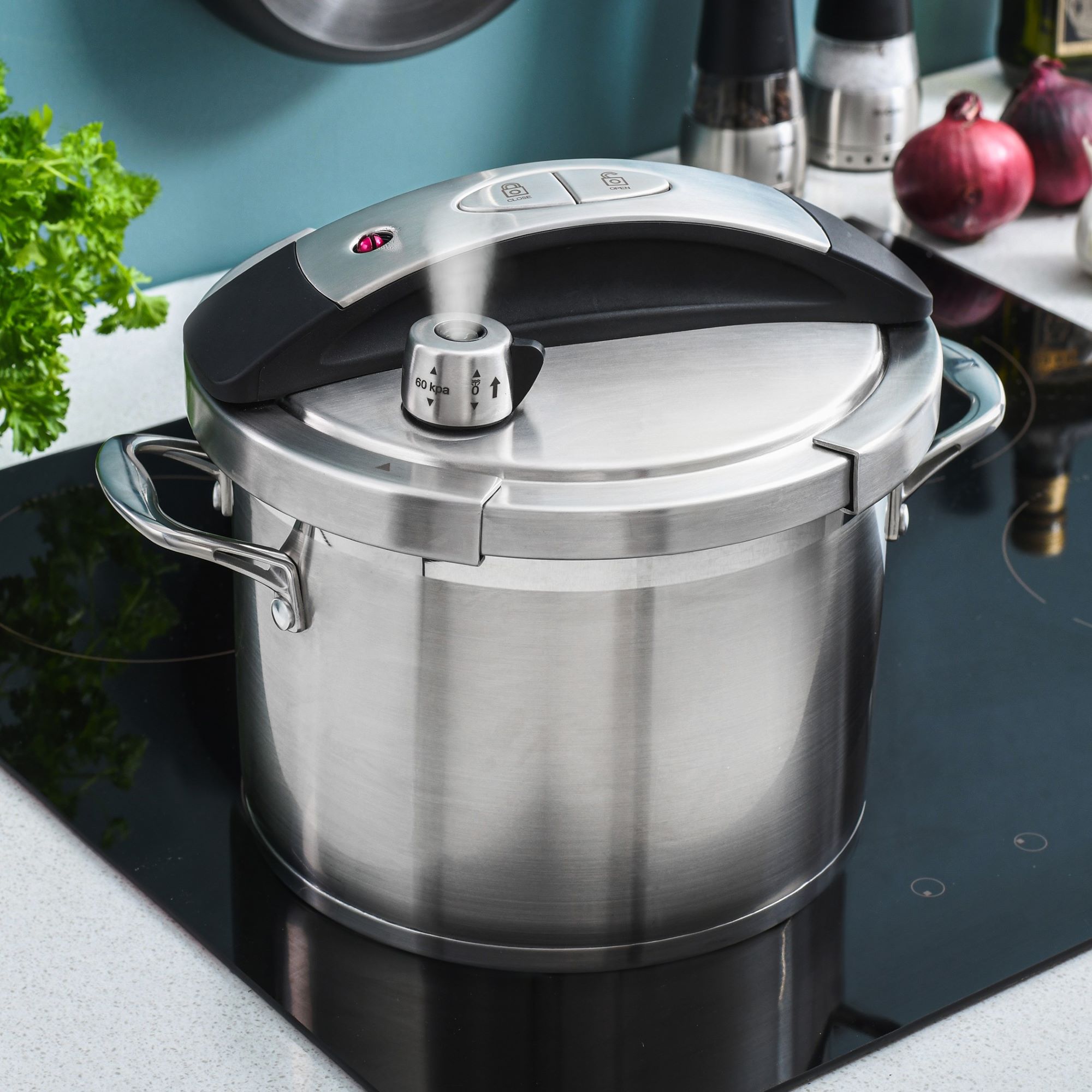
'Pressure cookers are airtight cooking appliances that use steam to cook food in around a third of the time that it would usually take on the hob,' says Thea Whyte, Small Appliances Expert, AO. 'Many pressure cookers include additional features such as slow cooking, steaming and sauteing, making it easy to do all your cooking in one handy gadget.'
Pressure cookers look like closed casserole pots, and they basically trap the steam from liquids in the pot to create pressure, which cooks the food. They may look similar to slow cookers, but they take a lot less time to make a meal.
'Other benefits of pressure cookers include increased vitamin and mineral retention (even healthier than steaming), increased flavour - as the pressure cooking method enhances the marination of the flavours - and more tender meats,' says Maria Vincent, Cookware Expert and Food Stylist, Kuhn Rikon UK.
Which is easier to use?
Slow cookers require you to prep the meal ahead of time, as the ingredients need to be placed in the pot many hours before you come to eat. 'While slow cookers require pre-planning and prepping ahead of time to ensure they can complete their ‘slow’ cook, a pressure cooker allows you to pull together a meal in minutes without the need to prep ahead,' says Joe Authbert, Buying Manager, ProCook.
You can cook a beef stew in as little as 25 minutes in a pressure cooker, which would take between 4 to 8 hours in a slow cooker depending on the setting. Pressure cookers are also the more versatile of the two, and can cook a larger variety of food than slow cookers according to the experts.
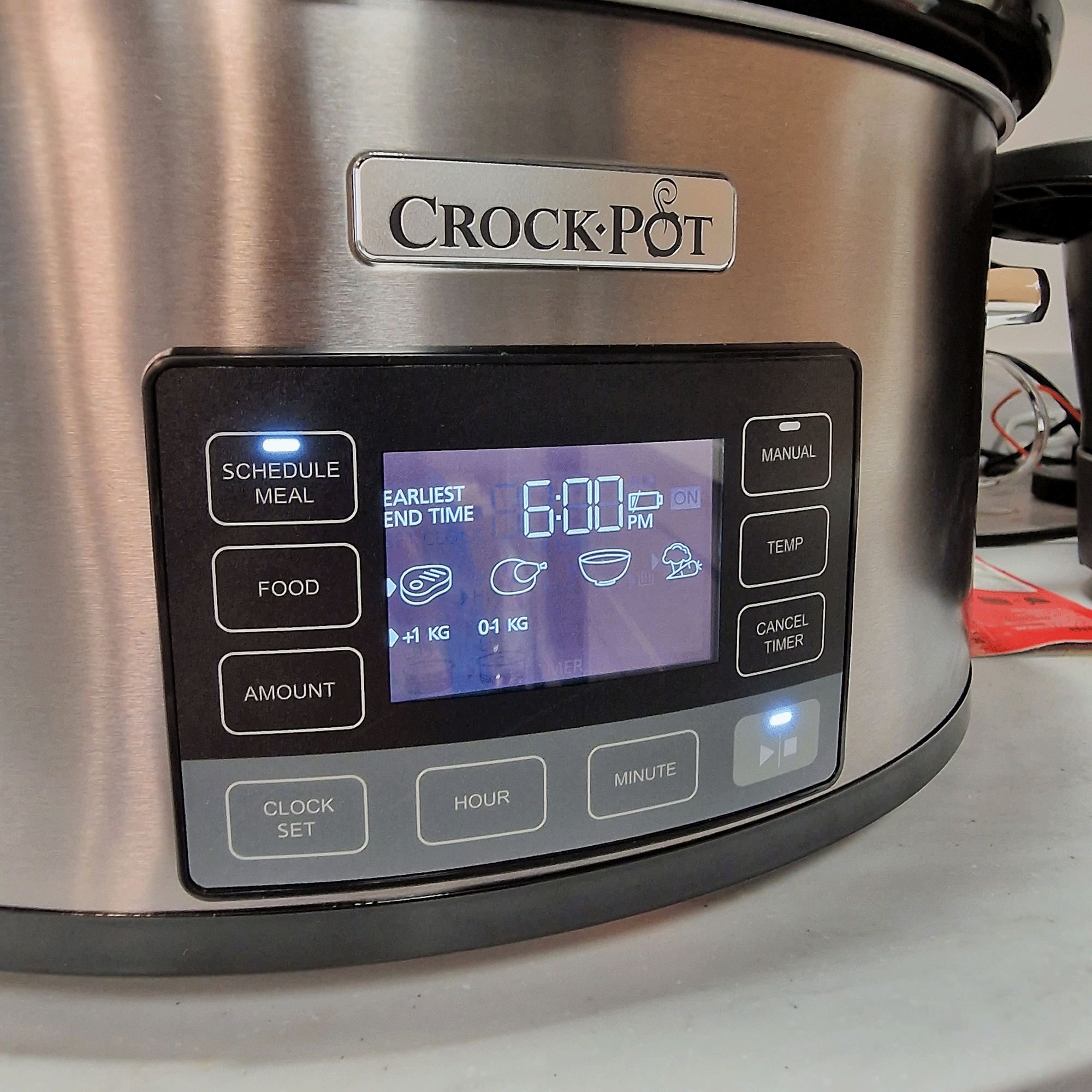
A slow cooker in action
'While both can be used for cooking succulent joints of meat, stews and soups, with a bit of know-how pressure cookers can also deliver perfectly boiled eggs, desserts and lightly steamed vegetables or fish in minutes offering heightened functionality in the kitchen,' says Joe.
But a lot of people do prefer slow cookers because they allow you to do other things whilst the food is cooking. 'A slow cooker can be left unattended for hours on end, making it a perfect appliance for people going to work, or looking after their children,' says Chef Dennis.
The ease of use between a slow cooker and a pressure cooker essentially comes down to individual lifestyles - whether you prefer to cook a meal quickly, or prepare it ahead of time and return to it hours later when the job's done.
Which is easier to clean?
Slow cookers are generally easier to clean than pressure cookers, as there's only one pot to clean. You can wash the slow cooker pot in the sink along with your other pots and pans.
'Sometimes you may need to let the compartment from the slow cooker soak for a while if the seasoning/sauces have stuck to the sides, but it's still relatively easy,' says chef Dennis. 'Pressure cookers are a different type of clean, as you usually have to disassemble the components and clean them individually which can be a bit more time-consuming.'
Pressure cookers have a few different inserts and compartments that will need cleaning after each use, including the lid. You'll need to dissemble the pressure cooker and wash each part in the sink, though check if they are dishwasher friendly. Stovetop pressure cookers are much easier to clean than electric pressure cookers though, as these can just be washed in the sink whole.
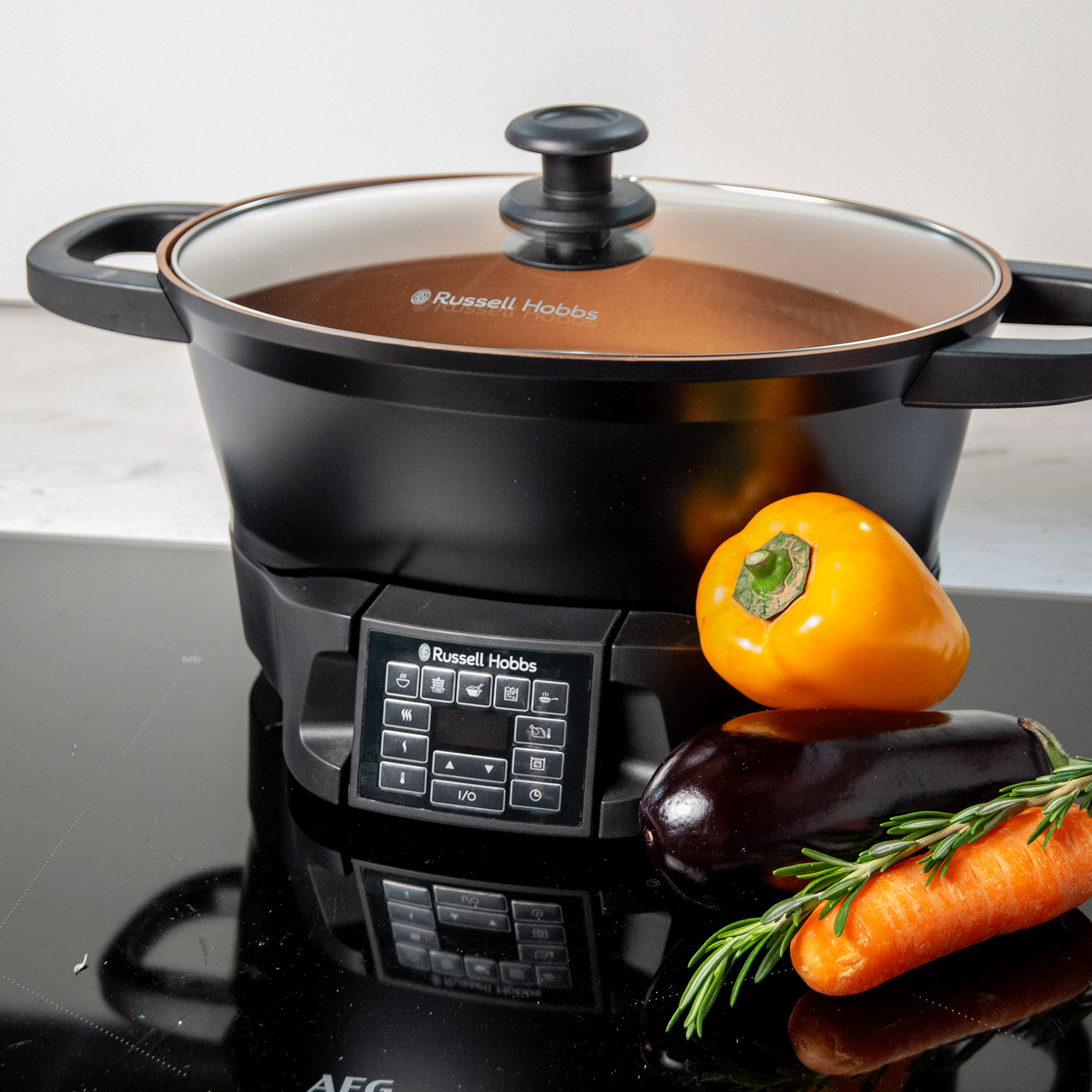
Which is easier to store?
'Slow cookers and pressure cookers are both quite simple to store and they come in different sizes and capacities,' says James, Reliant. 'Slow cookers tend to be larger, and therefore are more difficult to store than pressure cookers.'
There isn't a significant difference in size between a slow cooker and a pressure cooker though. How bulky or compact yours is will depend on the exact model, though they usually range in capacity from 2 to 8 litres. They are both countertop appliances that can be stored away with kitchen storage ideas if you prefer to keep your worktops clutter-free.
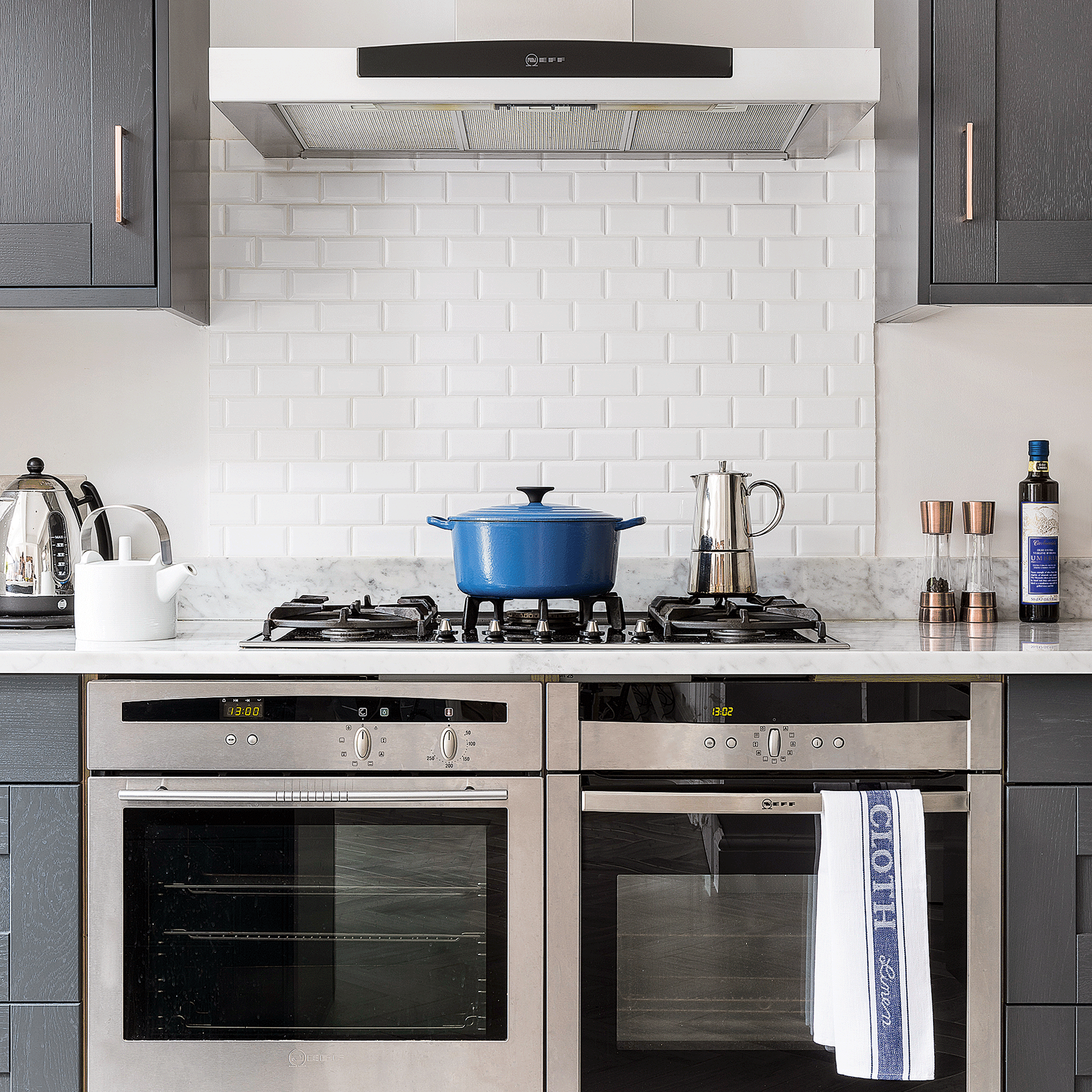
Which is more affordable?
Slow cookers generally tend to be more affordable than pressure cookers, ranging anywhere between £20 and £90, one of our top-reviewed Morphy Richards sear and stew slow cookers comes in at around £50. Good-quality pressure cookers tend to land more in the triple-figure range.
'Slow cookers tend to be cheaper but also not just for cost,' says Chef Dennis. 'They are much more energy efficient believe it or not, so make a great investment.'
Though slow cookers need to be switched on for hours at a time, they won't ramp up your energy bills, and experts actually revealed that slow cookers are the cheapest kitchen appliance to run. They only cost 5p per hour to run, according to Hometree. Pressure cookers aren't quite as cheap to run, though they can still save money compared to cooking on the hob and in the oven.
Can I use pressure cooker instead of slow cooker?
You can definitely use a pressure cooker in place of a slow cooker if you want a quick and easy meal. It will cook the meat just as thoroughly, and the pressure inside the pot will create a delicious, flavoursome meal in next to no time.
'I always follow the same rules with a pressure cooker as I do with a slow cooker: don’t overdo it with the liquid (a quarter of what you would normally use) and layer the ingredients starting with veggies,' says Sarah, Owner, Glorious Grazes and Posh Picnics. 'The beauty of a pressure cooker is if the meat isn’t quite tender enough you can bang it back in for 10 minutes and boom it’s done!'
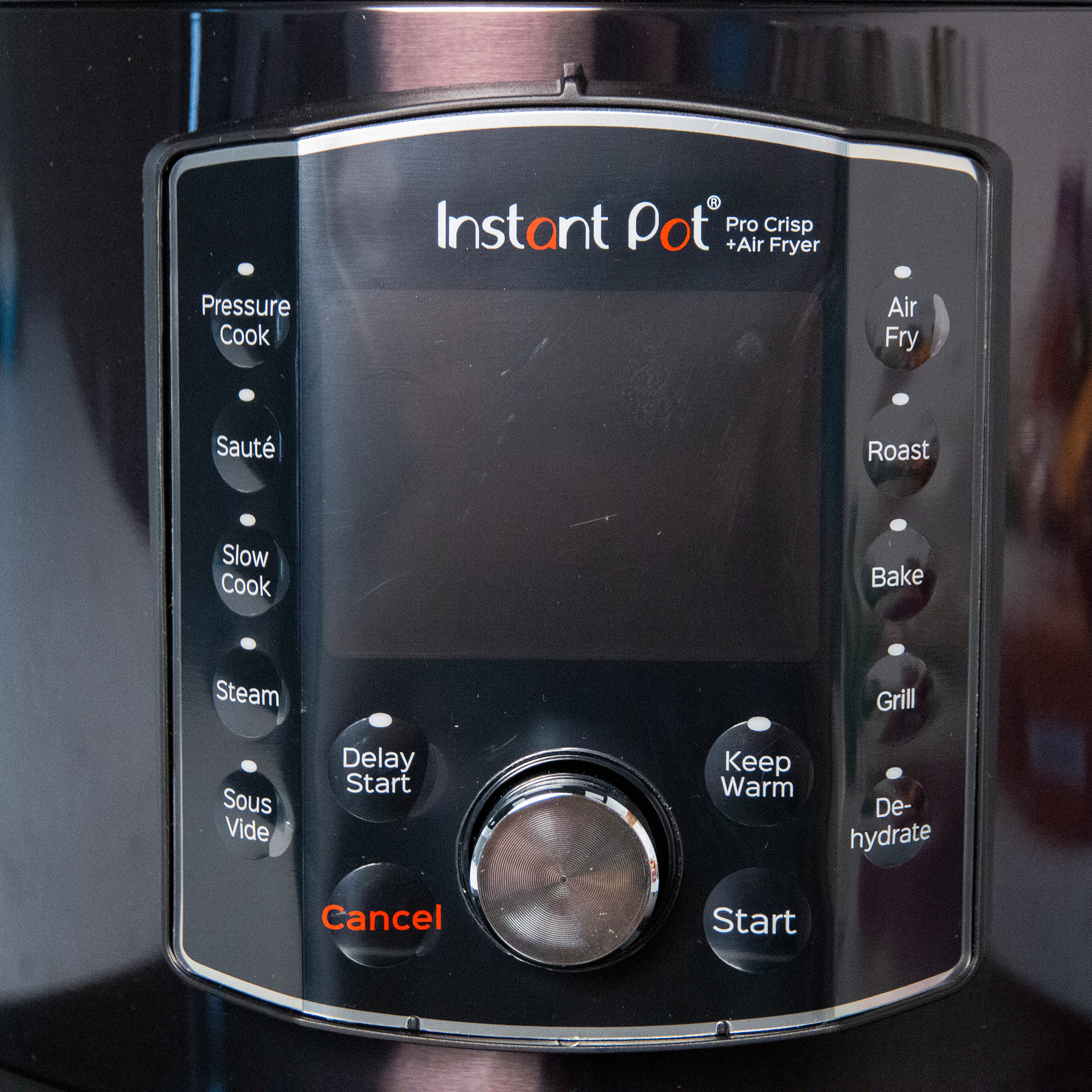
A multicooker with slow cooking and pressure cooking options
Which makes meat more tender slow cooker or pressure cooker?
Both a slow cooker and pressure cooker will make meat go lovely and tender, and experts tend to have different opinions on which one will do a better job.
'Both do a good job of tenderizing the meat, but personal preference for me is a slow cooker,' says chef Dennis. 'A pressure cooker sometimes makes the meat go a bit tough, especially if you have trimmed the fat before a cook. A slow cooker enables all fat to render down over a longer amount of time to make the meat super tender and tastier.'
Given that meat is cooked over such a long period of time in the slow cooker, it makes sense that it would be more tender than when cooked in a fraction of the time in a pressure cooker. But other experts say that a pressure cooker is capable of reaching the same level of tenderness.
'8 hours of slow cooking a beef stew for example, will gain the same tenderness as 25 mins in the pressure cooker,' says Maria, Kuhn Rikon UK. 'But the pressure cooker will have maintained more flavour (because the steam isn’t evaporating and disappearing), and maintained more nutrients and minerals.'
And if after all of this you really can't decide it could be worth considering a Multi-cooker with will allow you both functions in one device. However, beware they are often more expensive and bulky.

Katie has been writing freelance since early 2022, specialising in all things homes and gardens, following achieving a Masters in Media and Journalism. She started out writing e-commerce content for several of Future’s interior titles, including Real Homes, Gardeningetc, Livingetc, and Homes and Gardens. Since then she’s been a regular contributor on Ideal Home’s digital team, covering news topics, how-to guides, and product reviews.